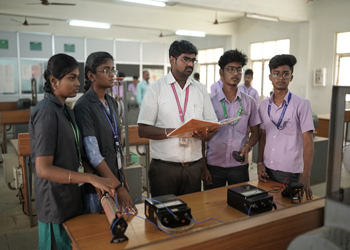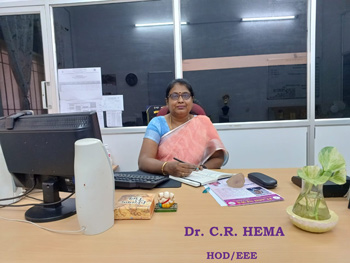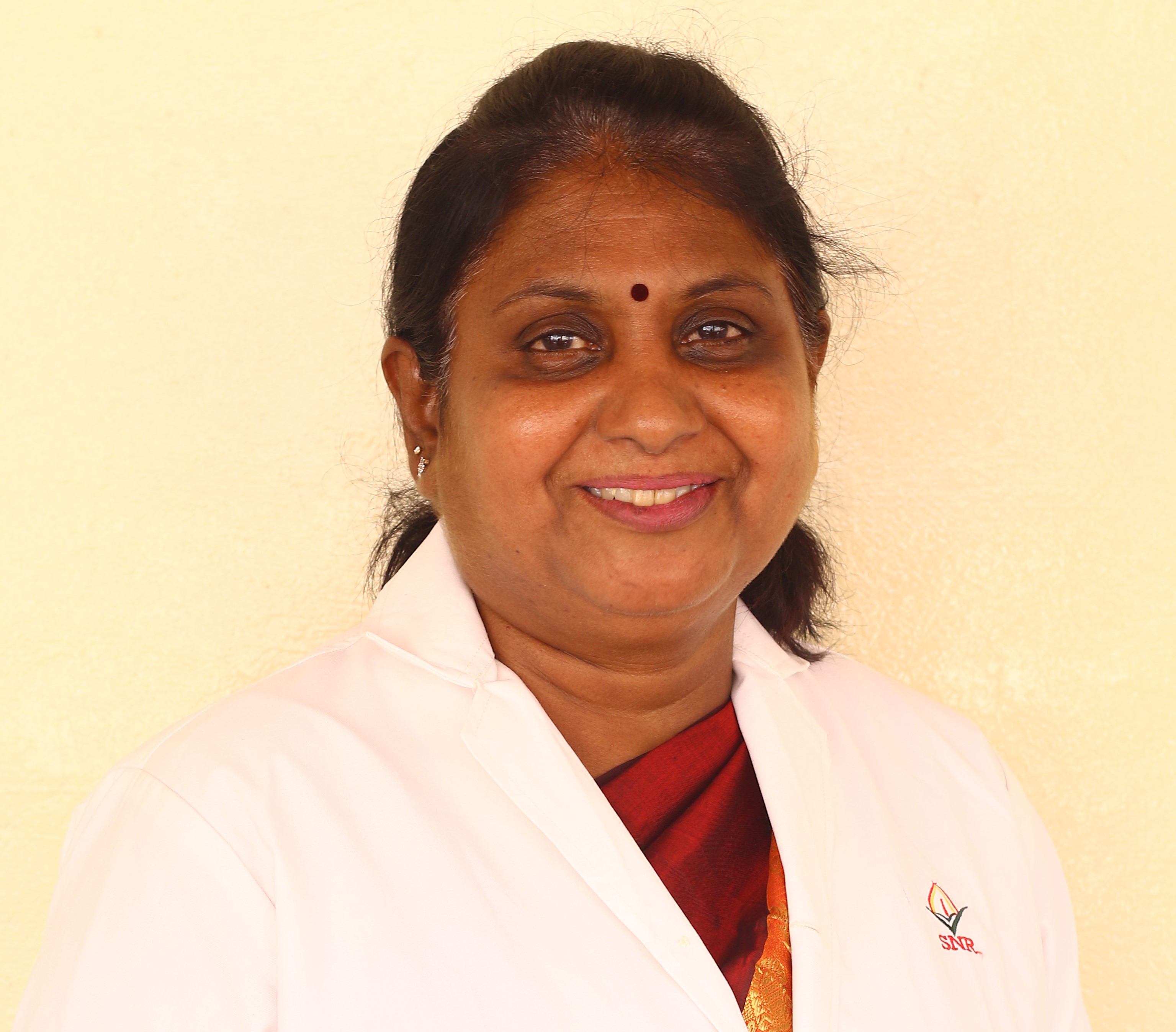Electrical machines laboratory
It has salient and non-salient pole alternators. It is possible to carry out vibration analysis using these machines. It also has power quality analyzer which is useful for analyzing the harmonic content and spectral content in alternators inverters for carrying out the energy auditing.
Control systems laboratory
This Laboratory has Digital storage oscilloscopes which are useful for measuring and recording different parameters like voltage, frequency, phasor measurements. It is possible to carry out transient analysis and FFT analysis using these scopes. Chopper and Converter fed DC drives for Speed control of DC motors are available. Three Phase Induction motor drive, SRM and BLDC drives are also available.
Power Electronics laboratory
IGBT based three phase inverter fed drive for controlling 3 phase induction motor which is used for speed control over a wide range is available.
Solar laboratory It has 1KW solar Panel with charge controller. Renewable energy based projects are carried out using this facility.
Power system simulation laboratory
It has ETAP, PSCAD, LABVIEW and MATLAB software. ETAP is useful for load flow analysis, Load frequency dynamic analysis, short circuit analysis, transient stability analysis in Power System related problems. MATLAB software is used to carry out simulation and analyze various engineering problems.
LABVIEW is employed to virtually measure physical quantities without employing any physical device. Further, it is useful in modelling and analysis of various systems through DAC interfacing with the system. Many complex control and soft computing techniques can be employed in simulation environment and the necessary actuating signals can be fed to the systems through DAC.
 The Department of Electrical and Electronics Engineering was established in 2002 with Undergraduate Programme B.E. Electrical and Electronics Engineering. The programme was accredited by NBA in 2011. Postgraduate Programme M.E. Power Systems Engineering was introduced in 2013. The Department has become a recognised research centre of Anna University in 2015. Department has successfully completed two consultancy projects and two more projects are in progress. Our Alumni are placed in prestigious organisations like Host International Electrical LLC-Sharjah, Amazon-USA, Infosys, CTS, L&T, Bosch, San Engg. Locomotives and so on
The Department of Electrical and Electronics Engineering was established in 2002 with Undergraduate Programme B.E. Electrical and Electronics Engineering. The programme was accredited by NBA in 2011. Postgraduate Programme M.E. Power Systems Engineering was introduced in 2013. The Department has become a recognised research centre of Anna University in 2015. Department has successfully completed two consultancy projects and two more projects are in progress. Our Alumni are placed in prestigious organisations like Host International Electrical LLC-Sharjah, Amazon-USA, Infosys, CTS, L&T, Bosch, San Engg. Locomotives and so on The Department of Electrical Engineering was formed with the primary objective of providing world class education in the field of Electrical Engineering, while addressing the problems of today and tomorrow. Right from its inception, the department has been offering excellent infrastructural facilities with a variety of platforms for aspiring professional students to meet the growing demands of the Electrical industry.
The Department of Electrical Engineering was formed with the primary objective of providing world class education in the field of Electrical Engineering, while addressing the problems of today and tomorrow. Right from its inception, the department has been offering excellent infrastructural facilities with a variety of platforms for aspiring professional students to meet the growing demands of the Electrical industry. 